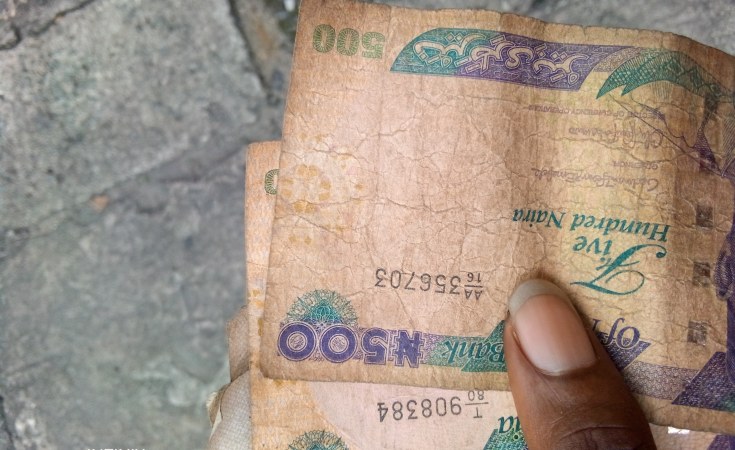The federal government's filings came hours after the Supreme Court issued an order temporarily halting the CBN's plan to end the use of the old currency notes on 10 February.
The federal government has called on the Supreme Court to dismiss a suit challenging the 10 February deadline set by the Central Bank of Nigeria (CBN) to end the legal tender status of the old versions of some newly designed currency notes.
It argues that the Supreme Court lacks jurisdiction to hear the suit. The suit was filed by three states - Kaduna, Kogi and Zamfara States, all in the northern part of Nigeria and controlled by the ruling All Progressives Congress (APC).
The respondent maintains that the case is not a dispute between the federation and the state governments, but merely an issue about CBN's policy.
It says the suit is, therefore, not qualified to be taken directly to the Supreme Court for adjudication. It argues that the suit ought to have been commenced at the Federal High Court.
The Attorney-General of the Federation (AGF), Abubakar Malami, sued as the sole defendant as the representative of the federal government, filed his opposition to the suit as a preliminary objection against it at the Supreme Court on Wednesday.
Mr Malami's filings came hours after the Supreme Court granted a request by the three state governments for an order temporarily halting the CBN's plan to end the use of the old currency notes on 10 February.
Neither the federal government nor the CBN has commented on their plan to comply with the ruling.
Suit
PREMIUM TIMES reported how the three state governments had sued the federal government to challenge the Naira redesign policy.
Their application filed at the Supreme Court on 3 February prayed for an order restraining the CBN from ending the use of the old currency notes on 10 February as threatened by the bank.
They cited the sufferings the scarcity of the newly redesigned N200, N500, and N1,000 bank notes had brought upon many Nigerians.
After listening to the applicants' lawyer on Wednesday, a seven-member panel of the court, led by John Okoro, issued an order of interim injunction halting the plan by the CBN to end the use of the old banknotes as scheduled.
The court then adjourned the hearing of the main case until 15 February.
Filing
Ahead of the hearing, the AGF filed a preliminary objection urging the Supreme Court to dismiss the state government's suit.
The federal government's legal team led by two Senior Advocates of Nigeria - Mahmud Magaji and Tijanni Gazali - cited 11 grounds on which they anchored their call on the Supreme Court to dismiss the suit.
The defendant's legal team pointed out that the state governments' suit challenges the federal government through its agency, the CBN, to withdraw old banknotes from the financial system and introduce new ones.
Referencing Section 251 of the Constitution, they argued that the suit falls within the exclusive jurisdiction of the Federal High Court in matters of monetary policy of an agency of the federal government.
"The claims or reliefs are not against the federation, but the Federal Government and its Agency, the Central Bank of Nigeria.
"The Federal Government of Nigeria is distinct from the Federation or the Federal Republic of Nigeria.
"The Plaintiffs have no grievance whatsoever against the Federation of Nigeria.
"This suit has disclosed no dispute that invokes this (Supreme) Court's original jurisdiction as constitutionally defined," the defendant's lawyers contended.
The applicants, through their lawyers, are expected to oppose the defendant's preliminary objection.


